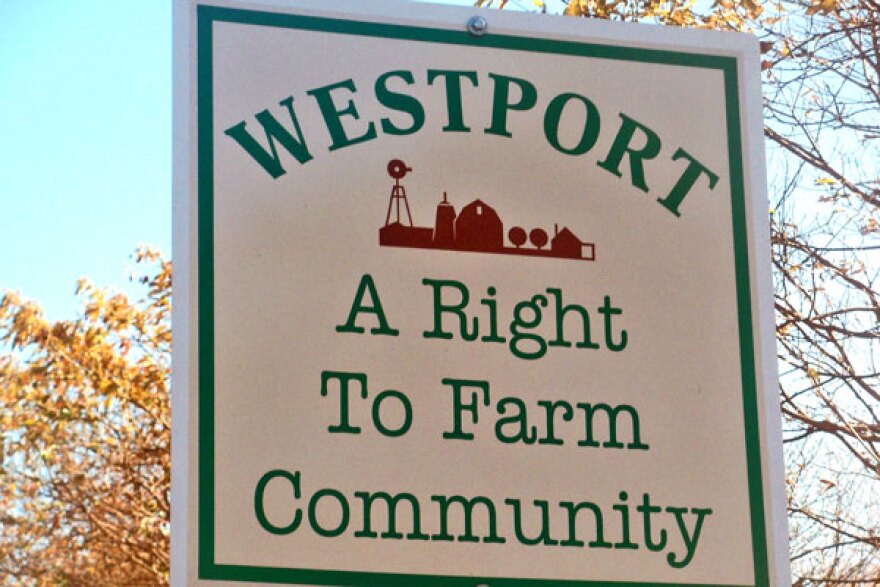Some farmers are feeling a bit defensive – or put-upon -- these days. Take the recent experiences of Bob Young, for instance. The 69 year old raises 36-hundred hogs on the land where he grew up near Rochester in central Illinois. When he was getting ready to build a hog confinement facility seven years ago some area residents, concerned about the potential smell of the place, filed suit. A court order stopped construction for 18 months.
While that lawsuit ultimately fizzled, skirmishes like this are coming up with regularity across the country. And that’s got agribusiness groups moving from defense to offense. The latest tactic involves passing constitutional amendments in individual states that would secure a “right to farm”.
Dan Kleinsorge leads an organization called Missouri Farmers Care… it’s a mix of 40 groups including the Farm Bureau and Monsanto. They’ve successfully lobbied to get state lawmakers in Missouri to put an amendment on the ballot in 2014. Kleinsorge notes, “The highest law in the state is the state constitution, so what we are really looking for is a right in that state constitution to protect farming”
Kleinsorge says it’s about more than lawsuits. He points to “attacks” by animal welfare groups such as the Humane Society of the United States to put more regulations on livestock farming. “We want people to understand that this is something where agriculture feels has been targeted by special interest groups that have a great deal of money.” Also of concern: Opponents of genetically modified foods are making inroads with state laws state ballot initiatives that would require the labeling of food.
Right to Farm might seem like a strange notion… after all we don’t see banks or big box stores getting such protections. And there are already laws on the books in all 50 states to protect farmers from nuisance lawsuits.
Farm groups, however, say most people are now at least two generations removed from farm life. And they don’t always realize food production has changed or that the farming way of life they knew even a short time ago is dramatically different. They say that makes the public more willing to regulate farming.
But the Humane Society sees it another way. Joe Maxwell, a vice president with the Humane Society, former Missouri Lt. Governor and a farmer himself, contends constitutional protection would allow farmers to escape regulation. “There’s this trend because industrialized ag, often times supported by the Farm Bureau, is really pushing to be able to not have to have any restrictions -- environmental restrictions or any restrictions on how animals are raised or how farmers are treated. They want to freewheel out there and be able to do whatever they want or abuse whatever they want.”
North Dakota voters approved the first “right to farm constitutional amendment” in the nation last fall. And right behind the ballot initiative in Missouri -- Indiana and Iowa look to be next in line.
The amendments differ a bit in their wording but the general thrust is that the right to engage in farming practices shall not be infringed. University of Missouri Political Scientist Peverill Squire, an expert on state constitutions, says there is still a question of what that means: “It could be essentially meaningless. That is, be more a symbolic gesture than a sort of binding constitutional principal. There’s nothing in the relatively few words that are being proposed that would give much guidance to legal authorities as they try to sort out all of this”.
In North Dakota the amendment easily passed, and little money was spent on the campaign. The battle in Missouri may be more expensive. The last time farm groups and the Humane Society squared off in that state they had a combined war-chest of ten million dollars.








